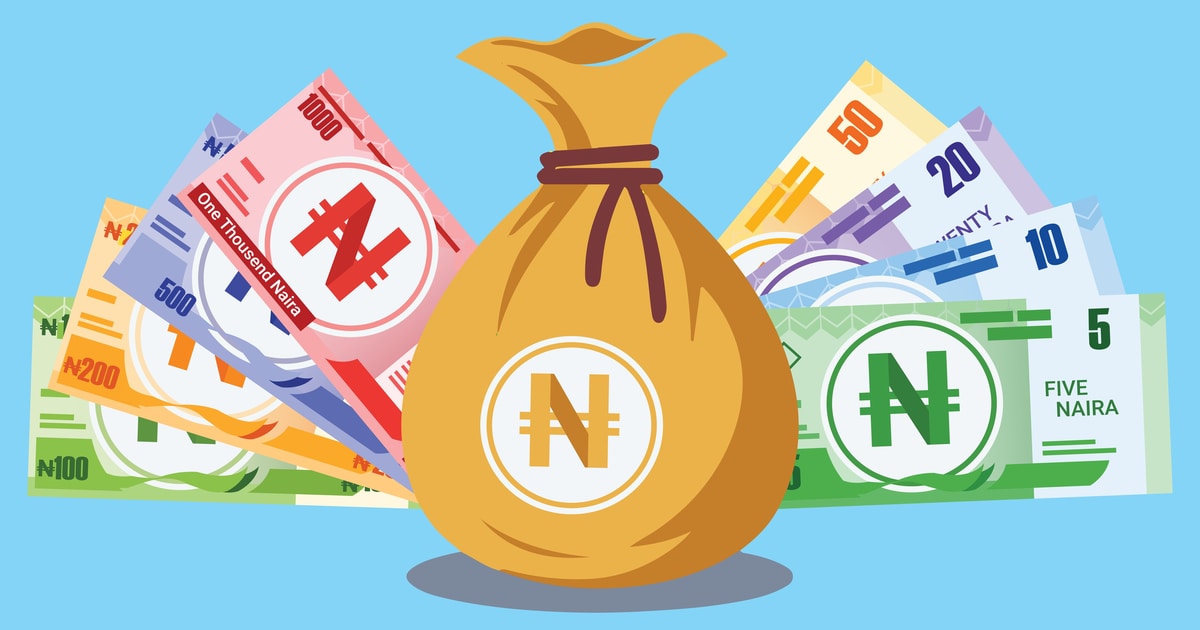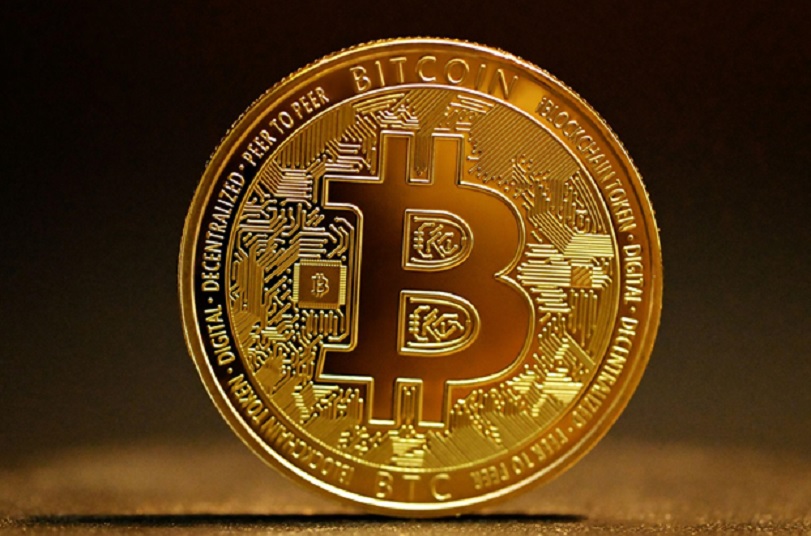Economy
Can AI Startups Predict Ethereum’s Price Rise? DeFi Trading Gets Smarter

Ethereum has emerged as the dominant platform for Decentralized Finance (DeFi). Unlike traditional finance controlled by central institutions, DeFi uses blockchain technology to create a peer-to-peer financial system.
Ethereum’s programmable capabilities allow developers to build innovative financial applications, such as lending platforms, decentralized exchanges (DEXs), and yield farming protocols.
This has promoted the growth of DeFi, with the total value locked (TVL) in DeFi applications reaching record highs in recent years.
The year 2024 is shaping up to be a pivotal year for Ethereum. Experts predict a huge rise in Ethereum’s network activity and revenue, potentially doubling to $5 billion.
This bullish sentiment is further bolstered by the highly anticipated EIP-4844 upgrade, which aims to drastically reduce transaction costs and make the network more accessible to mainstream users.
While Ethereum forms the technological foundation, a new wave of innovation is surging in the DeFi space – AI startups. These young companies are harnessing the power of artificial intelligence to develop solutions that can transform DeFi trading.
With Ethereum’s price and network poised for significant growth, can AI startups predict Ethereum’s price rise and contribute to a smarter DeFi trading industry? Read on to learn!
Ethereum’s Revenue Surge and EIP-4844
Ethereum’s future appears bright, with analysts at Bitwise Asset Management predicting a staggering doubling of its revenue to $5 billion in 2024. This impressive growth projection reflects the increasing adoption and usage of DeFi applications built on the Ethereum network.
As DeFi protocols continue to attract users, the fees generated from transactions on the Ethereum blockchain will naturally rise.
A significant catalyst for this growth is the upcoming EIP-4844 upgrade, expected to be implemented later in 2024. This much-anticipated upgrade aims to address one of Ethereum’s biggest challenges – high transaction fees (gas fees).
EIP-4844 introduces a new transaction type called “blob-carrying transactions,” which store less critical data off-chain, significantly reducing the cost of transactions on the Ethereum network.
According to estimates, they range from 5-10x cheaper to 40-100x cheaper depending on the rollup type, which is paving the way for wider user adoption and further DeFi innovation.
DeFi’s Obstacles
Despite its rapid growth, DeFi still faces hurdles that hinder mainstream adoption. One of the biggest roadblocks is the issue of high transaction fees. On the Ethereum network, gas fees can fluctuate significantly depending on network congestion.
These fees can be a major deterrent for casual users and smaller transactions, making DeFi seem inaccessible and expensive.
Another challenge is the complexity of DeFi applications. Using DeFi platforms often requires a certain level of technical knowledge and familiarity with cryptocurrency concepts.
The user interfaces of many DeFi protocols can be intimidating for newcomers, hindering wider participation in the DeFi ecosystem.
The Position Of AI In DeFi Trading
The burgeoning field of AI startups is rapidly transforming the industry of DeFi trading. These innovative companies are developing sophisticated AI-powered solutions that address key challenges and open new possibilities for participants in the DeFi ecosystem.
Price Prediction Models
One of the most intriguing applications of AI in DeFi is the development of price-prediction models. These models leverage machine learning algorithms to analyze vast amounts of historical market data, including price movements, trading volumes, and on-chain activity.
AI models attempt to forecast future price movements for assets like Ethereum by identifying patterns and trends within this data.
While not foolproof, AI-powered price predictions can be a valuable tool for DeFi traders by providing insights and potentially mitigating risk.
For instance, a price prediction model might indicate a potential surge in Ethereum’s price, prompting a trader to buy before the price increase occurs.
Automated Trading Strategies
Human emotions can often cloud judgment and lead to irrational trading decisions. AI-powered automated trading strategies aim to address this by removing human bias from the equation.
These strategies are pre-programmed sets of rules that guide trading activities based on specific market conditions.
For example, an automated trading strategy could be configured to buy Ethereum if the price falls below a certain threshold or sell it if it reaches a pre-defined profit target.
This approach allows traders to automate repetitive tasks and potentially improve their trading performance by adhering to a disciplined strategy.
Sentiment Analysis
Social media and news outlets are a constant stream of information that can influence market sentiment. AI startups are developing tools that utilize sentiment analysis to gauge the overall market mood towards Ethereum and other cryptocurrencies.
These tools analyze text data from social media posts, news articles, and online forums to identify positive, negative, or neutral sentiment toward Ethereum.
By understanding the prevailing market sentiment, traders can make more informed decisions about their DeFi investments.
The Impact On DeFi Trading
AI-powered trading offers a multitude of benefits for DeFi users, fundamentally transforming the trading experience. Firstly, AI automates repetitive tasks such as order execution and market monitoring, freeing up valuable time for users to focus on strategic analysis and portfolio management.
This increased efficiency allows traders to react more quickly to market opportunities and make informed decisions.
Secondly, AI-powered risk management tools can help users mitigate risk by automatically implementing stop-loss orders and other safeguards. This data-driven approach helps to remove emotional biases from trading decisions, potentially leading to more disciplined and profitable outcomes.
Finally, AI has the potential to democratize DeFi trading by making it more accessible to new users. User-friendly interfaces and automated strategies can simplify the complexities of DeFi, attracting those with less technical knowledge and fostering wider participation in the DeFi ecosystem.
Can AI Predict Ethereum’s Price Rise?
AI-based price prediction models hold immense potential, but it’s important to acknowledge their limitations. The cryptocurrency market remains inherently volatile, susceptible to unforeseen events and external factors that can disrupt even the most sophisticated AI models.
Additionally, AI predictions themselves can influence market behavior, potentially creating a self-fulfilling prophecy.
Therefore, AI should be viewed as a valuable tool for informed decision-making, not a guaranteed crystal ball for predicting Ethereum’s future price movements.
Wrapping Up
As Ethereum’s network activity and revenue surge, AI startups emerge as a powerful force in DeFi trading. These companies are developing innovative solutions like bitcoin pro air that utilize AI to predict price movements, automate trading strategies, and analyze market sentiment.
This confluence of AI and DeFi holds immense promise for the future. AI can facilitate DeFi trading, reduce risks associated with emotional decision-making, and make the DeFi ecosystem more accessible to a broader range of users.
As AI technology continues to evolve and integrate further with DeFi, we can expect even more groundbreaking advancements that will reshape the landscape of decentralized finance.
Economy
Seven Price Gainers Boost NASD OTC Bourse by 2.19%

By Adedapo Adesanya
Seven price gainers flipped recent declines at the NASD Over-the-Counter (OTC) Securities Exchange, raising the alternative stock market by 2.19 per cent on Friday.
According to data, the market capitalisation added N51.24 billion to end N2.389 trillion compared with the previous day’s N2.338 trillion, while the NASD Unlisted Security Index (NSI) climbed 85.65 points to close at 3,994.32 points, in contrast to the 3,908.67 points it ended a day earlier.
Business Post reports that the advancers were led by MRS Oil Plc, which improved its value by N13.00 to N200.00 per share from N187.00 per share, FrieslandCampina Wamco Nigeria Plc gained N7.40 to settle at N91.55 per unit versus the previous day’s N84.15 per unit, Central Securities Clearing System (CSCS) Plc appreciated by N6.08 to N71.00 per share from N64.92 per share, Afriland Properties Plc added 66 Kobo to finish at N17.17 per unit versus N16.51 per unit, IPWA Plc rose 37 Kobo to N4.15 per share from N3.78 per share, First Trust Mortgage Bank Plc grew by 11 Kobo to N1.20 per unit from N1.09 per unit, and Food Concepts Plc went up by 10obo to N3.70 per share from N3.60 per share.
On the flip side, there were two price losers led by Geo-Fluids Plc, which depreciated by 28 Kobo to N3.32 per unit from N3.60 per unit, and Industrial and General Insurance (IGI) Plc dropped 5 Kobo to sell at 45 Kobo per share from 50 Kobo per share.
Yesterday, the volume of trades went down by 92.0 per cent to 3.7 million units from 45.8 million units, the value of transactions fell by 59.4 per cent to N84.5 million from N208.2 million, while the number of deals went up by 7.7 per cent to 42 deals from 39 deals.
CSCS Plc remained the most traded stock by value (year-to-date) with 32.6 million units exchanged for N1.9 billion, trailed by Geo-Fluids Plc with 119.6 million units valued at N470.3 million, and Resourcery Plc with 1.05 billion units traded at N408.6 million.
Resourcery Plc closed the day as the most traded stock by volume (year-to-date) with 1.05 billion units sold for N408.7 million, followed by Geo-Fluids Plc with 119.6 million units worth N470.3 million, and CSCS Plc with 32.6 million units worth N1.9 billion.
Economy
FX Demand Worries Weaken Naira to N1,346/$1 at Official Market

By Adedapo Adesanya
The Naira weakened further against the United States Dollar in the Nigerian Autonomous Foreign Exchange Market (NAFEX) on Friday, February 20, by N4.97 or 0.37 per cent to N1,346.32/$1 from the N1,341.35/$1 it was transacted on Thursday.
Heightened FX demand tilted the market toward the downside yesterday, exerting upward pressure on rates despite efforts by the Central Bank of Nigeria (CBN) to stabilise the foreign exchange market.
Also in the official market, the domestic currency depreciated against the Pound Sterling during the session by N9.39 to sell for N1,815.25/£1 versus the previous day’s N1,805.86/£1, and lost N7.33 against the Euro to close at N1,584.62/€1 compared with the preceding session’s N1,577.29/€1.
The story was not different for the Nigerian Naira at the GTBank FX desk, where it depleted against the Dollar by N7 on Friday to quote at N1,356/$1 versus the N1,349/$1 it was sold a day earlier, but remained unchanged in the black market at N1,370/$1.
It was observed that risky sentiment among Foreign Portfolio Investors (FPIs) contributed to the FX market, amid fears of hot money flight due to capital gains tax and other factors.
As for the cryptocurrency market, it was mostly green yesterday in reaction to a Supreme Court verdict dismissing a fresh 10 per cent global levy by President Donald Trump.
The apex court on Friday described Mr Trump’s global tariff rollout as illegal. The decision did not clarify what should happen to tariff revenue already collected, and it doesn’t necessarily spell the end of the trade agenda, with multiple legal and executive avenues still available.
Litecoin (LTC) grew 2.7 per cent to $55.00, Cardano (ADA) appreciated 2.6 per cent to trade at $0.2815, Binance Coin (BNB) expanded by 2.6 per cent to $627.19, Dogecoin (DOGE) recouped 1.3 per cent to quote at $0.1, Ripple (XRP) jumped 0.7 per cent to $1.43, Solana (SOL) improved by 0.5 per cent to $84.15, and Ethereum (ETH) soared 0.1 per cent to $1,962.78.
However, Bitcoin (BTC) lost 0.2 per cent to sell for $67,850.49, while the US Dollar Tether (USDT) and the US Dollar Coin (USDC) traded flat at $1.00 each.
Economy
Fidson, Jaiz Bank, Others Keep NGX in Green Territory

By Dipo Olowookere
A further 0.99 per cent was gained by the Nigerian Exchange (NGX) Limited on Friday after a positive market breadth index supported by 53 price gainers, which outweighed 23 price losers, representing bullish investor sentiment.
During the trading day, the trio of Jaiz Bank, Fidson, and NPF Microfinance Bank chalked up 10.00 per cent each to sell for N11.00, N86.90, and N6.27, respectively, while Deap Capital appreciated by 9.96 per cent to N7.62, and Mutual Benefits increased by 9.94 per cent to N5.42.
Conversely, Secure Electronic Technology shed 10.00 per cent to trade at N1.62, Sovereign Trust Insurance slipped by 9.73 per cent to N2.32, Ellah Lakes declined by 7.91 per cent to N12.80, International Energy Insurance retreated by 5.56 per cent to N3.40, and ABC Transport moderated by 5.26 per cent to N9.00.
Data from Customs Street revealed that the insurance counter was up by 2.52 per cent, the industrial goods sector grew by 2.28 per cent, the banking space expanded by 1.43 per cent, the consumer goods index gained 1.23 per cent, and the energy industry rose by 0.05 per cent.
As a result, the All-Share Index (ASI) went up by 1,916.20 points to 194,989.77 points from 193,073.57 points, and the market capitalisation moved up by N1.230 trillion to N125.164 trillion from Thursday’s N123.934 trillion.
Yesterday, investors traded 820.5 million stocks valued at N28.3 billion in 63,507 deals compared with the 898.5 million stocks worth N38.5 billion executed in 61,953 deals, showing a jump in the number of deals by 2.51 per cent, and a shortfall in the trading volume and value by 8.68 per cent and 26.49 per cent apiece.
Closing the session as the most active equity was Mutual Benefits with 79.0 million units worth N427.1 million, Zenith Bank traded 44.0 million units valued at N3.8 billion, Chams exchanged 43.9 million units for N182.0 million, AIICO Insurance transacted 42.4 million units valued at N179.8 million, and Veritas Kapital sold 36.0 million units worth N90.6 million.
-

 Feature/OPED6 years ago
Feature/OPED6 years agoDavos was Different this year
-
Travel/Tourism10 years ago
Lagos Seals Western Lodge Hotel In Ikorodu
-

 Showbiz3 years ago
Showbiz3 years agoEstranged Lover Releases Videos of Empress Njamah Bathing
-

 Banking8 years ago
Banking8 years agoSort Codes of GTBank Branches in Nigeria
-

 Economy3 years ago
Economy3 years agoSubsidy Removal: CNG at N130 Per Litre Cheaper Than Petrol—IPMAN
-

 Banking3 years ago
Banking3 years agoSort Codes of UBA Branches in Nigeria
-

 Banking3 years ago
Banking3 years agoFirst Bank Announces Planned Downtime
-

 Sports3 years ago
Sports3 years agoHighest Paid Nigerian Footballer – How Much Do Nigerian Footballers Earn




















